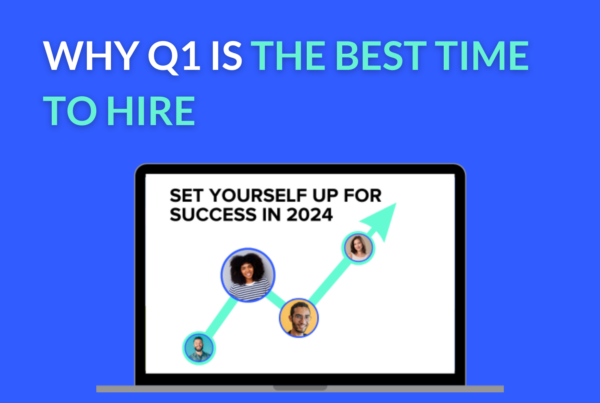For some time, companies have known the benefits of having diverse voices at the table. But it’s only over the past decade that talent policies have looked towards hiring neurodiverse employees. The benefits of hiring people with cognitive differences are abundant, with stellar imaginations, excellent logical thinking, and unique viewpoints being a few of their many standout skills.
Some neurodiverse people excel in operation roles, where pattern recognition and attention to detail are paramount. Many are highly skilled in product creation and design roles, where imagination and innovation are key to the success of a FinTech product or service. It’s for these reasons that many FinTechs are revising their HR programmes to attract and retain neurodiverse talent; and if you’re yet to do the same, its time you rethink your hiring practices and tap into this largely untapped talent pool.
What Is Neurodiversity?
‘Neurodiversity’ is a broad term used to describe how neurological differences, such as ADHD, autism and dyslexia are a natural variation in the human population. Coined by sociologist Judy Singer in the late 1990’s, in today’s culture, the term refers to a social movement which ensures that individuals with neurological differences are treated as equal members of society.
Approximately 1% of the global population is on the autism spectrum alone, and with fewer than 1 in 6 autistic adults being employed full-time, companies ignoring this talent pool are missing out.

Neurodiversity And FinTech: A Win-Win Equation
According to a Harvard Business Review, the benefits of a neurodiverse workforce include “productivity gains, quality improvement, boost in innovative capabilities” (because neurodiverse employees often don’t see things the same way neurotypical employees do) and “broad increases in employee engagement.”
Neurodiverse people are gifted in some skills which are proving essential in the digital age. For example, autistic brains are said to be highly creative with exceptional concentration, visual thought, logic and imagination. They’re also likely to be meticulous and detailed, creating and finding patterns and ultimately sharing unique insights and perspectives when problem solving.
Those with ADHD also tend to have great imaginations, scoring higher on creativity tests than non-ADHD people. Their ability to hyper focus is impressive, meaning that while they generally have an attention deficit, they have excellent focus in their areas of interest.
Dyslexic people have demonstrated a strong ability to think outside the box. 84% of people with dyslexia are above average in understanding problems, evaluating possibilities, reasoning and making decisions. When it comes to assessing situations from multiple views, their competencies are invaluable.
Ultimately, the skills which are highly prevalent in neurodiverse talent are the some of the greatest skills a FinTech professional can possess, with roles in product design, operations, engineering, compliance, and so on, all requiring someone who can bring innovation, problem solving, attention to detail and creativity to the table.

How To Attract Neurodiverse Talent:
This talent group clearly adds value to FinTechs. Companies across the globe are finding measurable success from hiring neurodiverse talent that bring their natural curiosity, unique perspectives and logical thinking to increase innovation, solve problems, and better understand their consumer base.
So, what can FinTechs do to attract this highly skilled talent pool?
Rewrite Job Descriptions:
Even if they’re highly qualified for the position, many autistic people won’t even apply to a role because of the way the job description is written. In comparison to neurotypical talent, autistic candidates have a tendency to opt themselves out of the job if they don’t match the description exactly, so make sure the language you use when listing the role requirements has an element of openness.
Make Hiring Pools Inclusive:
Neurodiverse people aren’t always in the same networks as hiring managers, who often hire from their known circles. To improve your access to this talent pool, build relationships with schools and non-profit organizations that work with neurodiverse people.

Train Hiring Managers To Reconsider Their Interview Process:
The majority of hiring managers aren’t trained on how to interview someone who is neurodiverse and who ultimately may not perform well in a traditional sit-down interview. Instead of the conventional process, consider participation in a group project, or a series of practical assessments to more effectively measure their skillsets and value.
Make Your Workplace Inclusive:
You need to make sure your workplace ‘works’ for everyone. Be direct with communication and make adjustments to help all employees perform at their best. Potential delays, changes in routine, and even visitors should be announced in advance. Standard good practices such as minutes for meetings and written agendas can also help support neurodiverse employees.
Have a flexible workplace so that each person can play to their strengths. Autistic employees may need special equipment, such as headphones to reduce auditory overstimulation, or they may prefer working in a separate space. Those with ADHD may require a quieter place to work or flexibility to their schedule.
Empower Through Advocacy And Policy:
Set up employee groups to help neurodiverse people feel more comfortable sharing their views and confident that they won’t be looked down on. Fostering a neurodiverse workforce ultimately comes down to managers removing assumptions and communicating in a fresh way, creating an inclusive culture from the top down.
If you’re looking to expand your FinTechs neurodiverse talent, get in touch! Our team of consultants can advise you on how to attract and retain neurodiverse candidates, as well as introducing you to their wide network of specialized FinTech professionals. Read our specialisms for more on the FinTech roles we work with.





